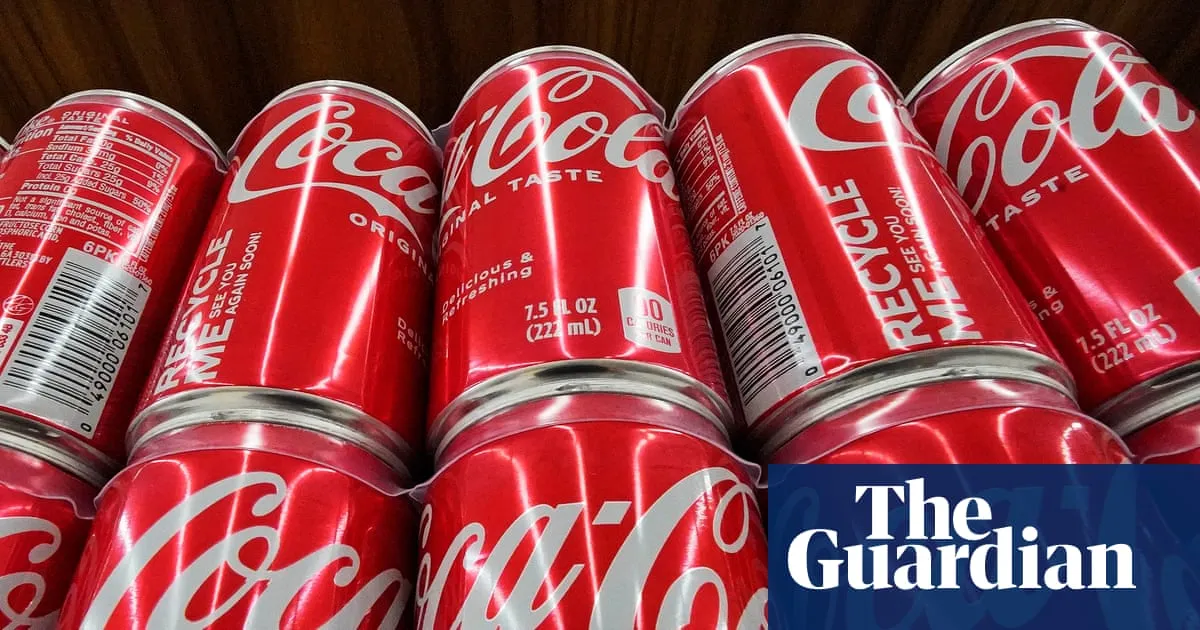
The Coca-Cola Company has publicly defended its continued use of high-fructose corn syrup (HFCS) following claims made by former President Donald Trump. On Wednesday, Trump stated that he had persuaded the beverage giant to switch to using real cane sugar in its U.S. drinks, similar to the formulations used in Mexico and the UK. In a post on social media late Tuesday, he expressed his gratitude to Coca-Cola for this purported agreement. “This will be a very good move by them — You’ll see. It’s just better!” he proclaimed.
Initially, Coca-Cola responded with a neutral statement acknowledging “President Trump’s enthusiasm” for the brand. The company hinted at “new innovative offerings within our Coca-Cola product range” but did not confirm any changes regarding sweeteners. However, the dialogue took a turn on Thursday when the company issued a more detailed statement defending its use of HFCS, a sweetener that has drawn criticism for its potential link to rising obesity rates in the U.S. and has become a focal point for health activists like Robert F. Kennedy Jr. and his Make America Healthy Again movement.
In its statement, Coca-Cola sought to clarify the nature of high-fructose corn syrup, stating, “The name sounds complex, but HFCS – which we use to sweeten some of our beverages – is actually just a sweetener made from corn. It’s safe; it has about the same number of calories per serving as table sugar and is metabolized in a similar way by your body.” The company further emphasized that the American Medical Association (AMA) had concluded that HFCS is no more likely to contribute to obesity than regular table sugar or other full-calorie sweeteners.
In 2023, the AMA reiterated its stance, stating there is currently “insufficient evidence” to restrict the use of high-fructose corn syrup or to mandate warning labels on products containing it. This position lends some credibility to Coca-Cola's claims, as the company insists that its products do not contain harmful substances.
Trump's sudden engagement in the Coca-Cola sugar debate comes at a time when he is facing scrutiny over the release of documents related to his former associate, Jeffrey Epstein. Trump's well-documented fondness for Diet Coke, which contains neither corn syrup nor cane sugar but rather aspartame, a low-calorie artificial sweetener, adds an interesting layer to the discussion. Notably, he has a red “Diet Coke button” installed near his desk to summon staff for his favorite beverage.
A switch by Coca-Cola to cane sugar could have significant implications for the $285 billion U.S. soft drinks market. In Mexico, Coca-Cola is produced using cane sugar and is packaged in glass bottles. Some of this product is imported into the U.S., often referred to as “Mexican Coke,” and sold at a premium compared to its American counterpart. The U.S. arm of Coca-Cola transitioned to HFCS in the 1980s, primarily due to domestic farming subsidies that favored corn over imported sugar cane, which is subject to tariffs.
Reverting to cane sugar could present financial challenges for Coca-Cola, especially if Trump's tariffs on countries producing sugar cane remain in place. This situation is reminiscent of previous tensions between Trump and Coca-Cola over voting access in Georgia, where the company is headquartered. Interestingly, ahead of Trump’s second inauguration as president in January, Coca-Cola's CEO, James Quincey, presented him with an Inaugural Diet Coke Bottle, indicating a complex relationship between the beverage giant and the former president.